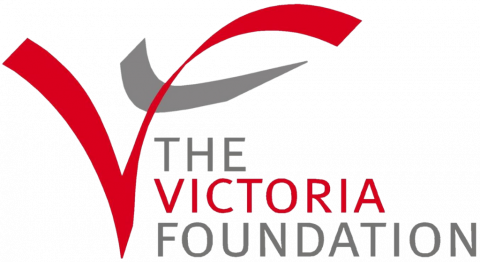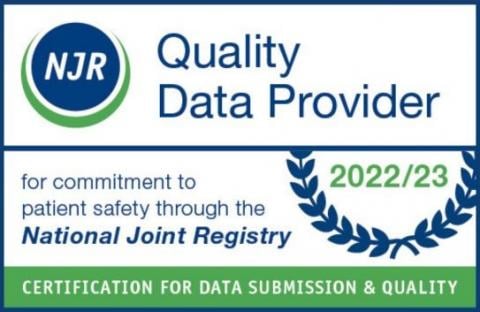
Being diagnosed with breast cancer can be shocking and overwhelming. Most women who go to the clinic are healthy and don’t have any other symptoms other than a breast lump that is often tiny or not even palpable. On top of the stress of understanding your diagnosis and treatment options, you might have another question in mind, “Will I lose my breast?”. During Breast Cancer Awareness Month, Miss Chloe Constantinou, Consultant Oncoplastic Breast Surgeon at New Victoria Hospital, explains which breast surgery procedure between Mastectomy and Breast Conservation is safer.
What are the treatment options available for breast cancer?
There are different types of surgical procedures available to treat breast cancer.
Depending on the location and size of the tumour, any other risks, or contraindications for other therapies, your breast surgeon will advise for a specific surgical breast cancer treatment:
- Mastectomy
- Breast-conserving surgery (BCS)
Mastectomy
The total removal of your breasts, including the skin, nipple and in some rare cases, the muscle, can be recommended in case of extended cancer when it is located in the centre of the breast.
There are also skin and nipple-preserving mastectomy procedures where these tissues are left to allow better reconstruction results. Reconstruction can be performed at the same time as the mastectomy or delayed. However, mastectomy is not always the right treatment.
Breast-conserving surgery
Breast Conservation refers to all the procedures aiming at preserving your breasts as much as possible.
A lumpectomy is the removal of lumps and part of the surrounding healthy tissue to be analysed for pre-cancerous cells. Lumpectomy is usually followed by radiotherapy to remove any remaining cancerous cells. A quadrantectomy or partial mastectomy can involve up to a quarter of the breast.
Breast-conserving surgery is recommended especially for younger patients when tumours are localised with clear margins, small and monocentric. Many women feel reassured when they know that they can preserve their breasts. Many others are determined to have a mastectomy as they feel this is the safest option to eliminate the risk of cancer coming back.
But is mastectomy the safest option? Does it really offer survival benefits compared to breast conservation surgery (BCS)?
There is a very simple answer to that question, and the answer is: NO!
Mastectomy vs Breast Conservation
It’s now more than 30 years since the publication of the first key trial confirming that there is no oncological benefit of having a mastectomy compared to breast-conserving surgery (BCS) followed by post-operative radiotherapy to the breast.
In addition to these many other trials since then have shown that BCS in combination with radiotherapy does not have an inferior outcome to mastectomy even when there are many lymph nodes involved, or if they are young cancer patients, or if they have specific more aggressive subtypes such as triple-negative breast cancer.
More recently, population-based studies have reported even improved overall survival after BCS with radiotherapy compared to mastectomy.
Similarly, in May 2021, a Swedish national population-based cohort study has shown better survival with BCS than with the mastectomy irrespective of RT. This relates to a 6-Year Follow-up of 48 986 women that investigated the association of socioeconomic factors and comorbidity with overall and breast cancer-specific survival after BCS with radiotherapy and mastectomy with and without postoperative radiotherapy.
For this reason, if both surgical techniques are possible, mastectomy should not be regarded as equal to breast conservation.
Is Breast Conservative Surgery always the best option?
Mastectomy has become increasingly popular after Angelina Jolie announced she would undergo the procedure as a form of prevention. But every patient is different, and the key aspects to consider when cancer is diagnosed are different from preventative treatment choices.
There are many factors to take into account when deciding on which surgical procedure is the right one for each patient: the size of cancer and its association with breast volume, the location of the tumour in the breast, patient comorbidities and if there are any contraindications for postoperative radiotherapy.
In the past, there were some standard indications for mastectomy. However, with the development of oncoplastic breast surgical techniques and the use of neoadjuvant (pre-operative) systemic treatments, these have now changed. The oncoplastic techniques can be used for conversion to breast-conserving surgery among women with large tumours relative to breast size that would otherwise require a mastectomy.
The oncoplastic techniques allow wide excision of large tumours or multiple tumours with the integration of plastic techniques for immediate breast reshaping without compromising the natural shape of the breast.
Historically, patients with multiple large lesions would have been advised to have a mastectomy. Today they are good candidates for BCS, which allows them to have a much-improved aesthetic outcome, as well as a better survival rate.
Radiotherapy concerns are a trigger for mastectomy
Another reason many women choose to have a mastectomy is that they are worried about the side effects of radiotherapy.
Having a mastectomy does not guarantee that you will not need to have radiotherapy as this will depend on the final tumour size, the characteristics of the tumour and the nodal status.
Modern radiotherapy is CT-based planning for better coverage of the breast and the lymph nodes and reduced dose to the heart.
Mastectomy, with or without reconstruction, compared to BCS, can have a higher complication rate, longer hospital stays and rehabilitation time, significant change in your body image, reduced quality of life, and difficulty coping for some women - consequences that might be avoided by opting for breast-conserving therapy if it can be done safely.
All the patients should be given the time to understand their diagnosis, surgical options and the benefits of mastectomy and breast conservation surgery before they make their final decision on which procedure they would like. Ultimately, patient compliance is vital for successful results and patient satisfaction.
If you would like to discuss your options with our Breast Specialists at New Victoria Hospital, you can call us on 020 8949 9020 or:













